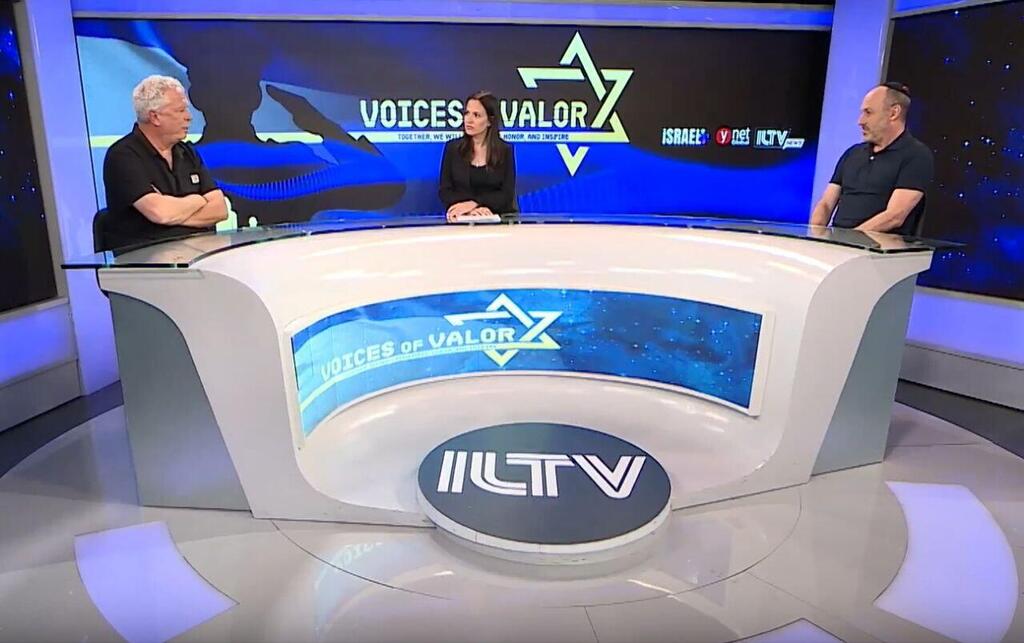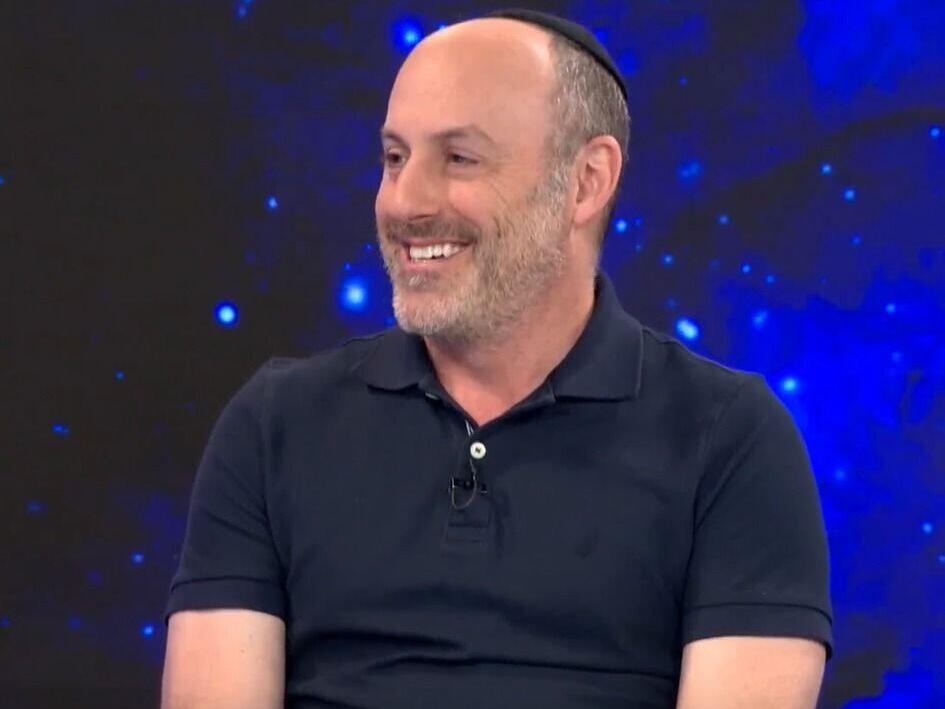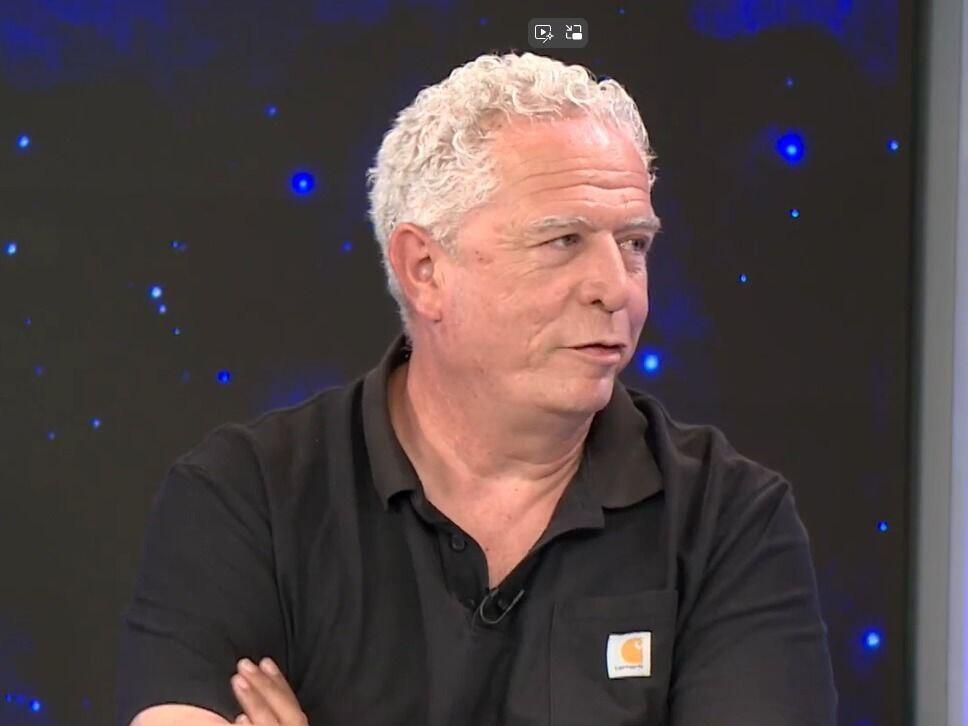In collaboration with Leket Israel
In times of war, some battles are fought in bomb shelters and others in the open fields. For Yossi Naim, a farmer from Pri Gan near the Gaza border, the war arrived at his doorstep on October 7—not just as a national tragedy, but as a direct assault on his home, his land and his livelihood.
In a powerful joint interview with Joseph Gitler, founder and chairman of Leket Israel, Naim recounts the terrifying hours of the attack and the uphill battle to keep his farm alive. Gitler, meanwhile, sheds light on how Leket Israel pivoted in the wake of the crisis, providing unprecedented support for farmers like Naim.
Together, their stories paint a portrait of a community under siege—but also of deep resilience, unlikely partnerships and a growing recognition that agriculture is not just a profession in Israel. It’s a form of defiance, identity and hope. The interview is part of the Voices of Valor event, who shared stories of courage, heartbreak and resilience.
“We’re still fighting”: One farmer’s war for his land
On the morning of October 7, Naim was jolted awake not just by the familiar sound of rocket fire—but by something far worse.
“In a minute, you understand there is something else,” he recalled. “You hear all the shooting around you—from the left, from the right, from your phone.”
Watch the interview:
Voice of valor - Agriculture Terrorism & Food Security Joseph Gitler Yossi Naim
(צילום: ליאור שרון)
As terrorists stormed his moshav, eight motorcycles broke through the gate. Only two local guards with M16s tried to stop them. With no response from the army, volunteers from a nearby moshav, Shlomit, disobeyed orders and rushed to help. After a brutal three-and-a-half-hour firefight, the attackers were driven out.
“I was sure they murdered my cousin and her three boys,” said Naim, who spent the attack sheltering with his wife and four sons. “Only in the evening we realized no one from our moshav was even wounded. That’s our miracle. My miracle.”
But when the shooting stopped, the struggle was just beginning. Returning to his farm days later, Naim and his father found their fields abandoned, their Thai workers gone and the area under military lockdown. “It looked like the end of the world,” he said. “Like the end of the state.”
In the weeks and months that followed, Naim tried to push forward. But with most of his workforce gone, many of his fields off-limits due to security concerns and the constant threat of rockets and drones, everything changed. “I used to grow 500 dunams a year,” he said. “Now? Barely 100. But we’re still pushing the wheel. We’re still fighting.”
From surplus to solidarity: When food rescue becomes a lifeline
For Joseph Gitler, founder and chairman of Leket Israel, stories like Naim’s became an urgent call to action.
“There are a lot of Yossis,” he said. “And this Yossi is unique. We’ve spent a lot of time together, and his opinions are very important to us thinking about what makes sense for us to do.”
Leket Israel, normally focused on food rescue—collecting surplus produce and meals for the needy—shifted its operations immediately.
“Already Saturday night, October 7, we understood this wasn’t going to be business as usual,” said Gitler. “We made a decision right there and then that we are going to change our emphasis slightly to also take care of farmers in ways we normally don’t. Financial support, loans, even directly purchasing product from them which we never ever do.”
The crisis demanded creative solutions, especially as foreign agricultural workers left the country en masse. In response, Leket mobilized more than 120,000 volunteers—many bused to the south—to help keep farms afloat.
“It’s not just about food rescue anymore,” Gitler said. “It’s a struggle. Farmers missed one, sometimes two growing cycles. That impacts their cash flow, makes it hard for them to stay in business.”
Though Naim had only begun working with Leket during the COVID-19 pandemic, his appreciation for the organization runs deep.
“I used to call Leket a government organization, because I never used it,” he said. “Then COVID came, and my fields were full of premium vegetables nobody wanted to buy.”
That’s when he made the call—and everything changed.
“I was a guest in my own field. This is a unique feeling as a farmer,” Naim recalled. “They made me donate vegetables—not money—to people in need. And I didn’t have any money. That’s why I started to call them a holy company.”
In the aftermath of October 7, Naim said, Leket went even further—offering funds, volunteers and full logistical support.
“If the Ministry of Agriculture is the body, Leket is the soul of the farmers,” he said. “You call any guy from Leket and ask, ‘What do you need?’ They’ll answer.”
“We just want normalcy”
As Israel approaches its 77th Independence Day, Gitler is both reflective and hopeful.
“For Israel, of course we wish for peace, quiet, and the return of our hostages and return of our soldiers safely,” he said. “It’s hard to heal in any way without that happening.”
But for farmers across the country—north and south alike—the wish is simpler: normalcy.
“Businesses are built in a certain way and when things go awry, it could be very difficult to snap back,” Gitler explained.
He recalled a conversation with his son, a soldier in Gaza, in November 2023. “He called me and tried to see how everyone’s doing. I said, ‘No one wants to go out, restaurants are really struggling.’ And he told me: ‘Dad, that’s what we’re fighting for—so the regular people can just live life normally.’”
That normalcy, Gitler added, must include farmers. “They’re our first line,” he said. “And if we want them to stay strong, we need policies that protect farmers and make sure they can earn a living and find ways that the poor can also afford to buy fruits and vegetables. Hopefully, we can find that middle ground, and I think it would be an example of everyone benefitting.
In collaboration with Leket Israel






